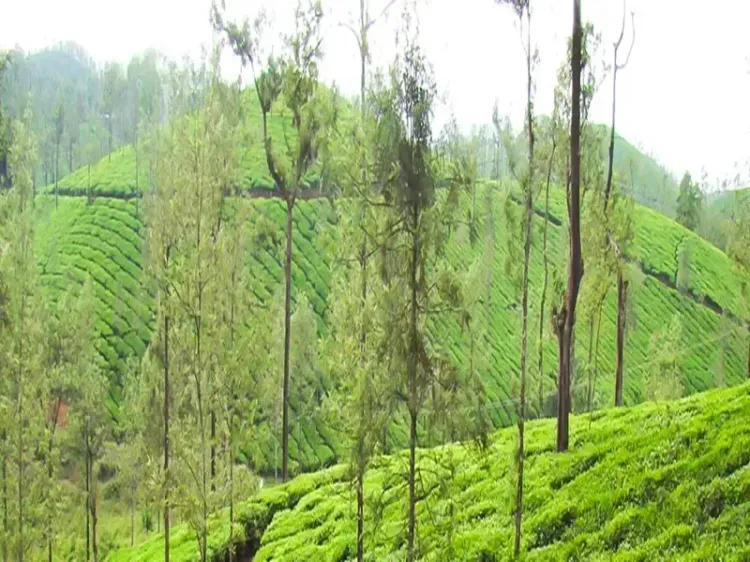Is the Nilgiris Forest Department Cracking Down on Tourism in Private Tea Estates?

Synopsis
Key Takeaways
- Nilgiris Forest Department enforces restrictions on tourism.
- Entry fees were charged for visits to scenic sites.
- Fines imposed to deter unauthorized tourism.
- Prior clearance required for tourism activities in private estates.
- Conservation efforts are vital to protect ecological zones.
Chennai, Sep 18 (NationPress) The Nilgiris Forest Department has enacted a stringent regulation to restrict tourism activities within private tea estates. This decision comes after an inspection uncovered that estate managers were charging entry fees for visitors to explore a colonial-era bungalow and its picturesque surroundings.
According to officials, this measure was initiated following a tip-off regarding a private tea estate located in the Hungerford area, close to Governors Shola, which had been advertising the bungalow and a nearby hanging bridge on social media as essential tourist destinations.
The location, known for its cinematic appeal, began attracting a considerable number of visitors. It is alleged that estate staff were demanding Rs 100 per person as an 'entry fee' and even levying fines on those who inadvertently wandered onto the property.
As a result of the inspection, forest officials imposed a fine of Rs 1 lakh on the estate management.
A case has also been filed under the Tamil Nadu Forest Act, 1882.
“No private estate possesses the authority to manage or monetize tourism activities within reserve forest boundaries or adjacent areas,” warned a senior forest official, emphasizing that similar misconduct elsewhere would lead to severe consequences.
The department has stationed personnel at the site to prevent tourists from accessing the estate grounds. Visitors arriving at the site have since been turned away.
Officials highlighted that this action was imperative to ensure that protected forest zones are not commercialized under the pretext of private property rights.
The Nilgiris, renowned for its lush tea estates and historic bungalows, has always captivated tourists.
Yet, conservationists contend that unregulated tourism in ecologically sensitive areas like Governors Shola could result in environmental harm.
Forest officials have warned all private estates and farms against promoting tourism activities either online or offline, stating that prior authorization from the authorities is required before undertaking such initiatives.
This crackdown is part of a larger strategy to regulate tourism in the Nilgiris, where the distinction between private holdings and vulnerable forest areas is frequently ambiguous.
Authorities assert that this recent action should act as a cautionary tale for other estate owners who may attempt to exploit natural heritage sites for profit without proper permissions.










